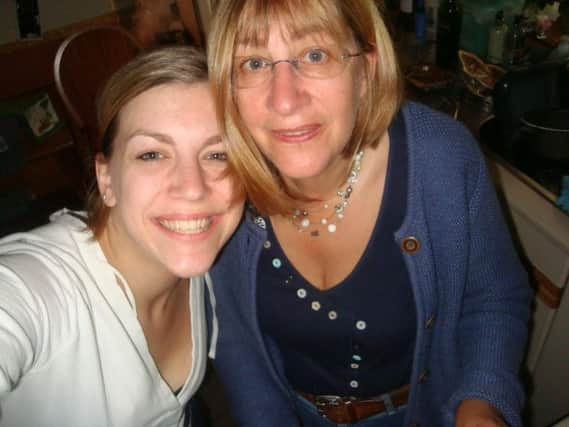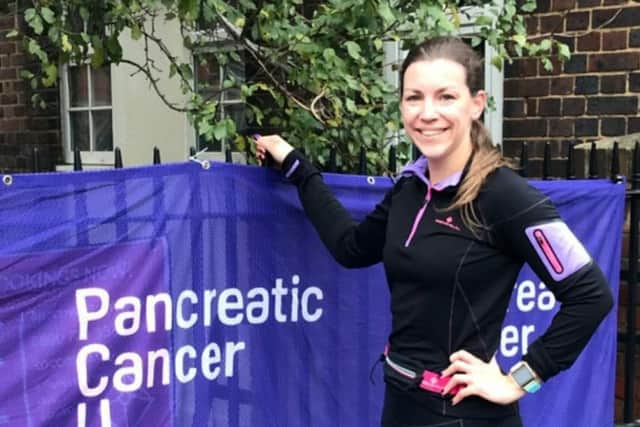Heartbreak as teacher dies of pancreatic cancer just 12 days after diagnosis


Fiona Bairner died aged 60 - less than two weeks after being told she had late-stage pancreatic cancer.
Her daughter Jennifer Bairner, 32, spoke of the shock of the diagnosis, and her heartbreak that her mum never had the chance to receive treatment.
Advertisement
Hide AdAdvertisement
Hide AdFiona, from Stirling, had just taken on a new job as head of department at an autism unit at a secondary school, and thought her symptoms - exhaustion and a loss of appetite - were due to the stress of starting a new job.


Jennifer said: "You think these things will never happen to you or your family. Then it does and it's horrendous. She was only 60.
"It was particularly hard for us because we hadn't gotten over the awful shock of finding out she had this disease and then 12 days later she wasn't with us anymore.
"It was unbelievably terrible. My mum was diagnosed at such a late stage, she didn't have any treatment.
"No chemotherapy or surgery. She died so soon after her diagnosis there wasn't time."
More than 780 people are diagnosed with pancreatic cancer in Scotland every year and GPs who suspect the disease can refer patients for ultrasound or CT and MRI scans.
However, nearly half of all pancreatic cancer patients are currently diagnosed via an emergency, such as visiting accident and emergency departments.
Vague symptoms such as back pain, indigestion and weight-loss mean pancreatic cancer often goes undetected until after it has spread.
Advertisement
Hide AdAdvertisement
Hide AdFiona leaves husband Jack Bairner, 68, her son Robin, 34, and her daughter, a payroll assistant at an accounting firm.
Jennifer added: "It's just terrible that nothing can be done sooner to help people with pancreatic cancer. Why isn't there a simple test for the disease to try and catch it earlier?
"I always wonder if it would have made a difference."
No screening or early detection tests exist for the disease.
Jennifer is now supporting charity Pancreatic Cancer UK to get funding for the first ever simple test for the disease.
The charity is investing £750,000 on research into early testing.
Diana Jupp, CEO of Pancreatic Cancer UK, said: "For too long pancreatic cancer has been able to silently go undetected, devastating families.
"Thousands of patients a year, still reeling from hearing the word cancer, are told it's too late, that nothing can be done for them.
"That has to stop. We have to give doctors the tools they need to detect the warning signs earlier, so they can ensure those who need it, receive treatment as soon as possible.
Advertisement
Hide AdAdvertisement
Hide Ad"Previous approaches to research funding have been too small, too infrequent and too isolated to speed up the diagnosis of pancreatic cancer.
"So we've united the brightest scientists from across the country to make the progress that's been so badly needed for decades.
"We are delighted to be making our largest ever investment in early diagnosis research, but it's an enormous challenge.
"We need the public to stand with us and support our campaign if we are to discover the diagnostic test we desperately need to save lives."